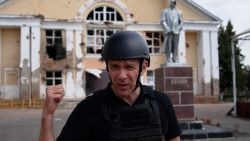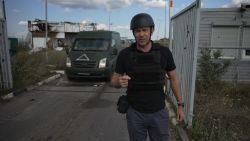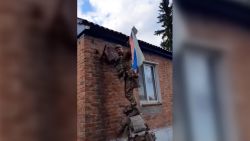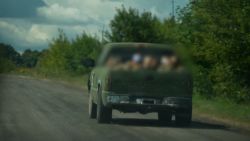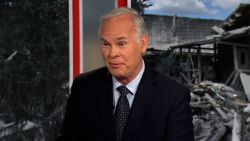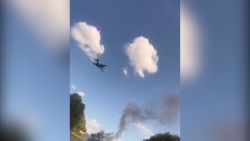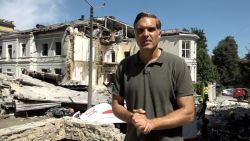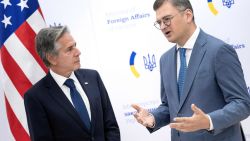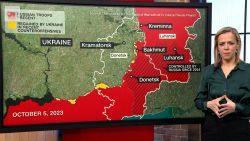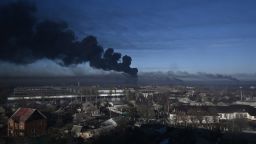Editor’s Note: Olesia Markovic is a PhD researcher at Ukraine’s National University of Kyiv-Mohyla Academy. Markovic is a former communications consultant for the International Finance Corporation and a foreign affairs reporter. The views expressed in this commentary are her own. Read more opinion on CNN.
My morning today didn’t start with coffee. My husband, who works for a company in the energy sector, got a phone call from work before the sun had risen. “Russians are shelling us,” he was told.
Immediately we heard distant blasts – most probably the sound of shelling near the capital’s Boryspil International Airport. More dire news followed. Russians had attacked Ukraine alongside its eastern and northern border, also from Crimea. There were airstrikes on military infrastructure near big cities, intensive fighting in eastern Ukraine.
Horrible news came from Kharkiv, eastern Ukraine, where shelling had damaged a residential building. An artillery explosive also hit Uman town in central Ukraine, far from the borders and uncomfortably close to our home in Kyiv. Meanwhile Ukrainian authorities, who introduced martial law this morning, are preparing evacuations of civilians from the most dangerous points.
Kyiv is facing a new reality, too. Lots of people left in the morning, causing traffic jams on exit roads from the city to the south and west. We – my husband and eight-year-old son – decided to stay. Watching the live feed of traffic on TV we figured that it would be safer to stay home. Especially given that all infrastructure in Kyiv – electricity, internet, mobile phone connection, subway – still worked just fine.
It’s now virtually impossible to get out of Kyiv by car, due to congestion on the roads. Still, we remain at the ready. We have packed the necessities – folder with documents, laptops and carriers for our three pet cats in case we hear the shelling siren and have to go to the bomb shelter.
With our bags packed, we now focus on our work. Kyiv’s schools already switched to online teaching (not that there was much mood for classes today), and so my son got an unexpected day off. He doesn’t know what caused it and doesn’t seem concerned – after all, random school closures became the norm during lockdown. He took a choco-spread sandwich and went to the living room to watch Ironman (his favorite super hero) while we remained glued to our phones and updates of war.
Right now, my adult version of Ironman is the Ukrainian army. It would not be an exaggeration to say that they are the shield between the civilized world and Russian forces threatening to destroy all around. This morning feels like a movie – but I can’t press the “off” button.
Over these last few weeks I have received endless offers from my friends living in the Unites States, Australia, Canada, Croatia, Poland, Slovenia and Hungary to come and stay. They were opening their hearts and doors to their homes. Knowing that we have this kind of safety net is comforting. But what is much more important now is to build a safety net for Ukraine.
That means calling on the international community for help – diplomatic solutions, sanctions, pressure on Russia – anything that would make a dictator stop in his tracks. It’s very clear now that a country attacking a peaceful neighbor constitutes a threat to the rest of the world. Ukraine badly needs international support – through actions that would lead to feasible results.
In the meantime, Ukraine will stand strong. It’s not the first time in our history that we resisted a threatening empire. Over the last 100 years we survived through Soviet-orchestrated famine, GULAGs and attacks on Ukraine’s intellectual elites.
The independence Ukraine got in 1991 has always been a source of regret to Russian leadership, especially for Putin. In his apparent vision to restore the Soviet empire, Ukraine is a key element. Thus, for the 30 years of our independence, Russia was always disrupting: meddling in elections, poisoning pro-Western politicians, annexing Crimea, biting off Donbas. But try as it might, the Kremlin didn’t break us.
Putin denies Ukraine. He can write lunatic articles and deliver bizarre speeches alleging that there is no such nation as Ukraine, that we are one people with Russians. But we Ukrainians, unlike many Russians, have tasted freedom and have it in our DNA. We are different people.



